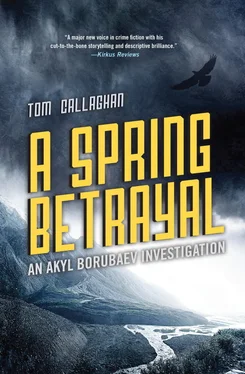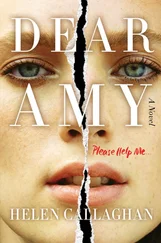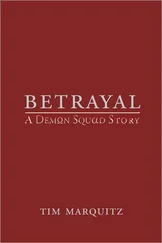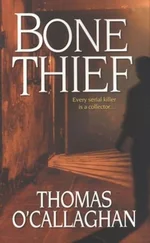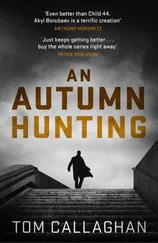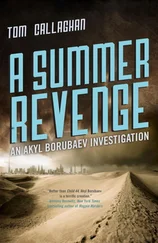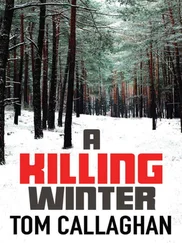I felt my chest tighten. Saltanat was entering a dark part of my life, stirring up memories I tried to keep buried. I needed a moment to decide what to reveal, what to keep concealed.
“Can you pull over for a moment? Piss stop.”
Saltanat stopped the car, I got out, walked to where the side of the road ended in a drop of hundreds of meters. The slope was bare of everything but scree and the odd patch of sparse grass. I kicked a pebble over the edge, watching it bounce and spin until it was lost from sight.
I pretended to urinate, then walked back to the car. By the time we were moving again, I’d made up my mind what to tell Saltanat.
“I was tucked away in the orphanage for two years. My grandfather’s second wife didn’t like me living with them, and with my mama away, well, you know how that fairy tale goes. The wicked stepmother. And my grandfather didn’t need the earache she gave him.”
I paused, surprised at how strong my memories were.
“It wasn’t a bad place, I suppose. Somewhere to sleep. Get fed. They even tried to teach us, although God knows we were a mixed bunch. But it was never home, never a place where you felt secure, loved, wanted.”
Saltanat stared ahead as she drove, listening intently to every word.
“I ran away twice. First time after a couple of weeks, missing my grandfather, the smell of papirosh tobacco when he hugged me, pinched my cheek, told me what a fine boy I was. I don’t know what I was expecting when I got back to the farm. A loving welcome, I suppose, plov on the table, a cup of hot chai , and the rasp of Grandfather’s stubble on my cheek as he kissed me. Surprise, it didn’t work out that way. His wife had me back in the orphanage the next day, but not until she’d whipped me with a belt while my grandfather looked on, helpless.
“So the second time I ran away, I had a little more of a plan. Hitchhike to Bishkek, find a job in a restaurant, or unloading the lorries that come over the Torugart pass from China. But it’s almost four hundred kilometers from Karakol to Bishkek, and I didn’t even manage to get to the eastern shore of Lake Issyk-Kul before the traffic police saw me and delivered me back.”
I paused and stared back out of the window.
“And after that?” Saltanat asked, twisting her head slightly to look at me.
“Long story,” I said, hearing the rasp in my throat, as if I’d swallowed a peach stone. “Boring too.”
“We’ve got a long drive,” Saltanat said. “It’ll pass the time.”
I paused as the memories came back, unstoppable, rising in my mind the way vomit rises in your gullet.
“What you have to know about the orphanage is that it wasn’t a bad place to be. It was clean, warm, and the food was okay. We slept in dormitories, boys in one, girls in another. That’s not to say that the older boys didn’t try to sneak in with the girls after lights-out, but there was always a staff member on duty, so that was pretty much a no-no.
“There was a certain amount of bullying, nothing too serious, the sort of thing I was used to from school, bigger boys trying to prove who was top dog by hitting the little ones. And again, the teachers did their best to stop it happening.”
Saltanat waited for me to carry on, but I simply stared out of the window, at the snow on the mountain caps, smeared by the red stain of the setting sun. Like blood blooming against a white tiled floor.
“Toward the end of my second year at the orphanage, I was pretty much resigned to living there, at least until I was sixteen, in two years’ time. Treading water, you might say. Then a new boy arrived, Aleksey Zhenbekov. He was tall, maybe fifteen, with the sort of muscles you get on a farm where the only machinery is in your arms and your back. His face was almost black from the sun, and his temper was just as dark. From the beginning, he was determined to cause trouble, show the world he wouldn’t tolerate any disrespect. Especially from the younger ones, the weak ones, the ones who’d never learned to fight.
“He called it ‘discussion.’ With fists as enduring as rocks, slaps like being struck by a shovel. Like all bullies, he could smell fear the way a cadaver dog can lead you to the dead.”
I paused, my mouth suddenly dry. This was a story I’d always thought should be left unspoken, its details covered over with earth and quickly forgotten. Sensing my mood, Saltanat pulled over to the roadside and stopped. We got out and walked in silence to the drop-off. With dusk almost upon us, shadows growing thicker, the air this high up had a bite as savage as the wolves that live in these mountains. I felt we were balanced at the edge of the world, that a sudden wind could sweep us away into darkness.
“There was one boy, Adilet, the same age as me. One of those boys who spoke only when spoken to, who tried to shower on his own, who didn’t join in any of our playground games.
“Adilet was a godsend to Zhenbekov, someone with whom he could conduct his ‘discussions.’ So we’d find Adilet with bruises on his face, arms, legs. If we ever saw him in the showers, he’d have fist-sized dark brown marks that slowly turned purple and yellow. And over the weeks, Adilet spoke less and less, sat on his own in the classroom. At night, we sometimes heard him weeping in his bunk. And what did we do? Nothing.”
I lit a cigarette, stared out into the gathering dark.
“Of course we were scared of Zhenbekov. None of us wanted to replace Adilet as an object of discussion. But we could have ganged up on him, kicked eight kinds of shit out of him. Or just reported him to the staff. But we didn’t. We were cowards, simple as that.”
I felt the taste of tobacco in my mouth, the smoke curling out into the evening air as if the fire of my life was slowly dying down.
“What happened?” Saltanat said, and I saw sympathy in her face, a shared understanding that life is an obstacle course.
“It was one of those summer days where the heat gives way to a sudden shower, clouds coming down from the mountains, warm rain, sweet, gentle on your face. The kind of soft rain the land loves to drink. And suddenly, we were all called out into the yard, to stand there while the rain plastered our hair down into cowlicks and formed puddles in the earth beneath our feet.
“We stood in silence as a police van entered the yard, parked beside the shower block. After half an hour, the rain stopped, and we watched as two policemen struggled out with a body on a stretcher, placed it in the back of their van, drove off.
“We were all herded back into the orphanage, told the police would be questioning us over the next two days. I looked around, realized I didn’t see Adilet anywhere. The boy who’d almost perfected the art of invisibility was missing.”
I threw the butt of my cigarette over the edge, and watched the glowing spark tumble and disappear into the dark.
“That evening, I sneaked into the shower block. The staff had made a pretty good attempt to swab up the blood, but I could still see a few droplets and spatters on the tiled floor.”
“Did you ever find out who killed Adilet?” Saltanat asked.
“You’ve got it wrong,” I said, scowling at the memory. “It was Zhenbekov who’d lost his final discussion. Adilet had waited with a length of rusty steel pipe, smashed it into Zhenbekov’s skull. Three times. Adilet didn’t kill him, but Zhenbekov wasn’t going to be bullying anyone again. The police picked Adilet up about five kilometers from Karakol. We were told he didn’t say a word, either then or at his trial.”
The sun had almost set, and I could see our breath spilling out into the air, backlit by the moonlight.
“Years later, I found out that Adilet’s twin sister had been murdered by their stepfather, beaten, kicked to death, for who knows what? Not sweeping the floor to his satisfaction? Spilling a cup of chai and scalding his fingers? Struggling when he tried to enter her bed? Adilet did what he did to regain the control he’d lost when his sister died. No matter that you can’t always avenge the dead.”
Читать дальше
